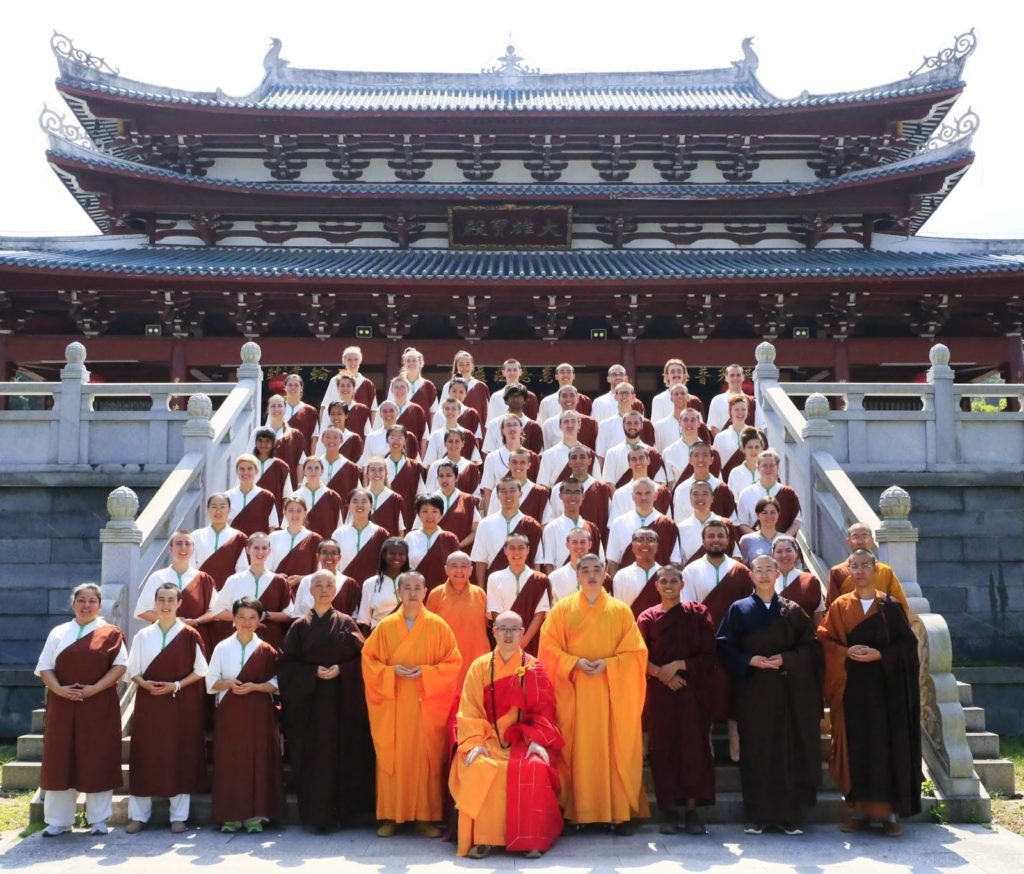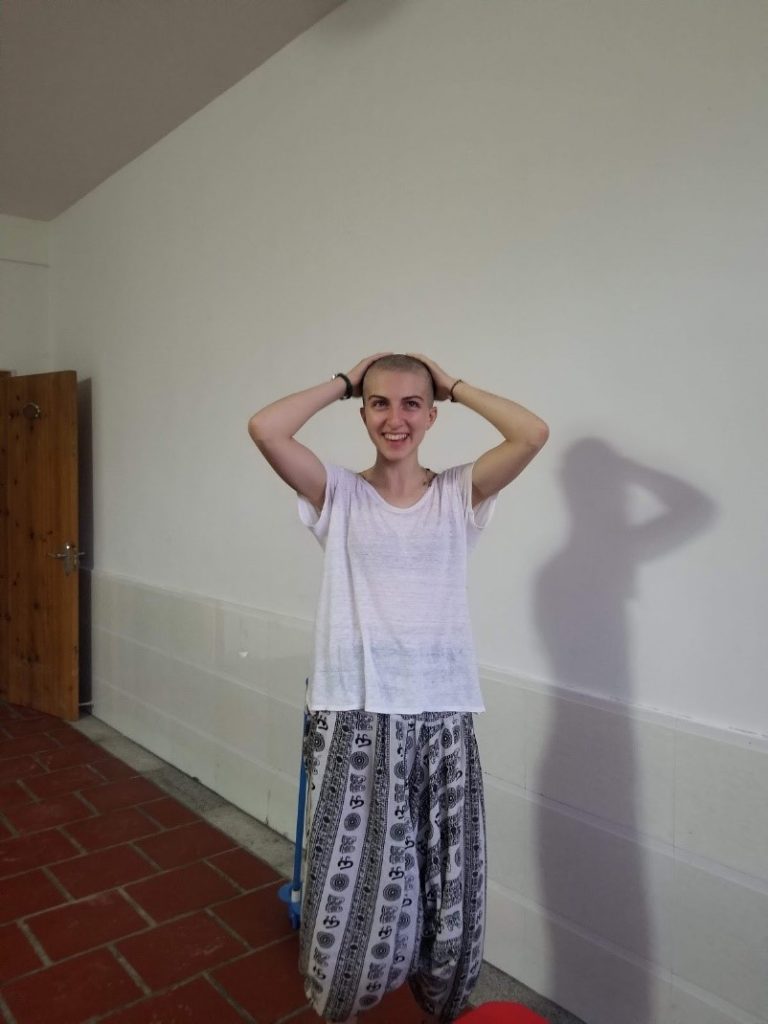Mariah Stewart is in her fourth and final year of studies at the University of Toronto, majoring in Political Science with a double minor in Contemporary Asian Studies and Mathematics. In July 2019, she participated in the Woodenfish Humanistic Buddhist Monastic Life Program (WHBMLP) in which she lived a monastic lifestyle for a month at the Southern Shaolin Monastery in Putian, China. Mariah’s academic interests are heavily concentrated in Southeast Asian politics – she was recently involved in research on the decentralization of Myanmar. After her fourth year, Mariah intends to conduct research in Southeast Asia before returning for her Master’s.
Last summer, the Joseph Wong Student Experience Fund helped support my trip to China to live in a monastery for a month through the Woodenfish Humanistic Buddhist Monastic Life Program (WHBMLP). Living like a monastic is incredibly easy and challenging all at once; what you get out of the program is truly how much you put into it. Every morning, I woke up at 4:40 AM and prepared myself for the day in quiet deliberation – our days frequently revolved around silence. When the time came when other participants and I could talk, we did not stop. On a 12-hour bus ride we had together, everyone was sharing music and stories from back home. Valuing time spent together became so much more meaningful — many individuals I met in the program have already become lifelong friends. Everyday programming involved kung fu lessons with the Vice Abbot, Buddhist philosophy classes, dharma talks, cultural workshops, and evening vespers (chanting). There was also a seven day silent meditation period and a pilgrimage to Mount Putuo, one of the four sacred mountains in Chinese Buddhism. All of these experiences were difficult and all were imperfect. If there were no hiccups, we probably were not challenging ourselves enough.
Challenges came in different forms for different people. Many struggled with unreliable access to running water and electricity. Others struggled with sitting for long periods of time. The list goes on. Though many of these aspects were challenging, the moment that stuck with me was deciding to shave my head. The day individuals were given the option to shave their heads was buzzing with energy: many were debating the pros and cons of it. “It’s just so hot – might as well shave it off!” and “How long is the awkward phase growing it back?” were just some of the many questions students were posing. Those with short hair were more willing to part with their locks and find the whole process rather exciting. I, on the other hand, felt incredibly conflicted. My moments of internal debate led to my most important conversation during the trip. One of my now dear friends described that the word xīn in Chinese means heart and mind, frequently understood as heart-mind. She encouraged me to reconcile the heart and mind to align. This was one of my biggest takeaways from the program – how often do we make decisions with others in mind, using the rational parts of our brains as opposed to digging deeper and listening to our own internal reverberations first? I couldn’t make my decision until I had the opportunity to simply sit with myself – no distraction or chatter. Every meal was eaten in absolute silence during my stay, and as I was mindfully deliberating over the tenderly cooked bok choy and glazed eggplant in my bowl, I felt the alignment my friend challenged me to find. The decision to shave my head still evokes fear and insecurity to this day; it is an embodied form of challenge that I still can’t escape. This small example demonstrates the significance of having the opportunity for immersive learning.
Without having the opportunity to fully immerse myself in an environment as unfamiliar as living in a monastery in rural Southeast China, I would have never had these incredibly profound opportunities for reflection. My motivations behind the trip continue to unfold in parallel and complementary ways – I of course wanted to learn as much as I could about Chinese Buddhism and I also wanted to have a profound opportunity for self reflection over the month. These two goals are interactive and complement each other well. There’s a wealth of scholarship that discusses the importance of out-of-classroom experiences manifesting in opportunities to engage in enhanced critical thinking, personal development and competence, and understanding the experiences of others more deeply. Though perhaps living in a monastery even if just for a month isn’t for everyone, I encourage students, especially in such a vibrant and passionate program like Contemporary Asian Studies, to take advantage of experiences that make you uncomfortable, in the classroom and outside of it.

